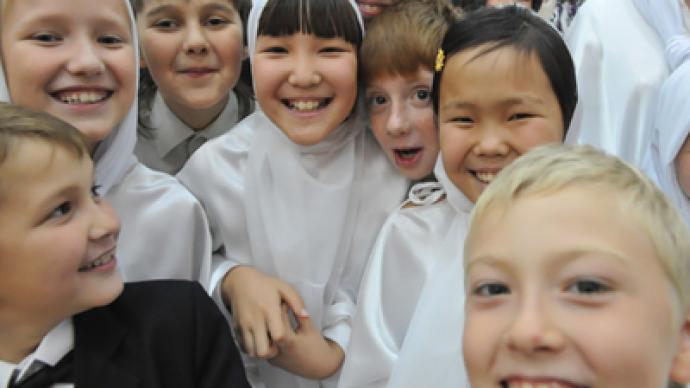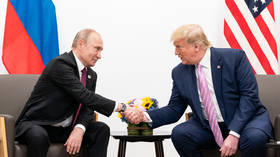Children should be better protected by law

There should be more laws and facilities that help protect children, say Russia’s ombudsmen for children.
At a conference held on Wednesday, they discussed problems concerning teenage abortion, punishments for pedophilia, protection of children of divorced parents, and corruption and bad living conditions in orphanages and summer camps. Despite the growing number of problems in this sphere, protection and consolidation of the family remains the top state priority, claimed the ombudsmen.One of the issues was a lack of laws protecting the rights of children in case of their parents’ divorce, for example those that oblige divorced parents to provide children with accommodation. There is also no law that would define parents’ responsibilities for children’s upbringing, which results in cases where children are taken away from good parents and cannot be taken from irresponsible ones. Another problem discussed was teenage abortion, in which Russia occupies one of the top rankings in Europe. Laws that exist at the moment leave the decision to have an abortion at the sole discretion of a teenager and do not require even notifying a parent. Pedophilia is another appalling problem in Russia, and punishment for this crime should be severe, “otherwise Russia will become another popular sex-tour destination, like Thailand,” stated Pavel Astakhov, ombudsman for children for the president of Russia. Astakhov also touched upon a problem of corruption in the orphanages. According to him, the government spends $50,000 annually for one child in an orphanage. However, this money do not always reach the children. The same problems arise in summer camps organized for children’s vacations. Such institutions should be provided with a phone number of a local ombudsman whom children can call and report about their problems, suggested Astakhov. While orphanages should be better organized and equipped, in theory they are still regarded as a temporary residence for orphans, as provision of a normal family for such children remains the priority. According to the ombudsmen, there should be more schools for adoptive parents where they could be provided with advice and consultation to reduce the number of children returned to orphanages. In the meantime, some ombudsmen for children in St. Petersburg are trying to contribute to the protection of children by developing a “windows of life” project. They try to organize special facilities where women can leave their newborn babies instead of abandoning them on the street. Each year dozens of newborns die, having been left in plastic bags, in the garbage or on riverbanks. It is not always a result of indifference or cruelty: sometimes desperate women that cannot afford to have a baby or do not want to become single mothers simply see no other choice, and leaving a baby without being noticed is almost impossible in a big city. Abandoned newborn babies are not only a Russian problem. Countries such as Germany, Belgium, Japan, Switzerland and Italy already have special posts for anonymous reception of abandoned babies. In one of the projects developed in St. Petersburg, a “receiving post” is situated next to a maternity hospital and looks like a box with a door and has a cradle inside. As soon as the baby is put inside, a hospital nurse is notified about it. The project is only being discussed, but it already has its opponents who fear that having been given such an “easy” opportunity, more women will be tempted into abandoning an undesired child.













